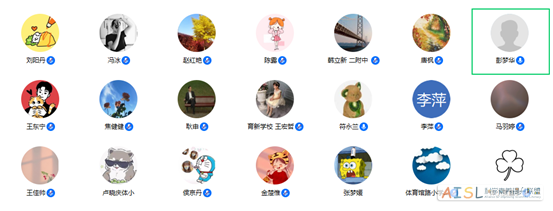2024年5月23日19:00-21:00,SSI-L项目组在腾讯会议举行了在线研讨活动,主要对首都师范大学附属育新学校的SSI-L选题和顶层设计展开探讨。此次会议SSI-L项目学科指导专家组组长、北京师范大学第二附属中学物理学科特级教师彭梦华老师主持,SSI-L项目负责人、特邀专家以及三所合作校的教师团队在线参与。
在研讨活动中,育新学校唐枫主任分享了关于“甜蜜诱惑:探索饮料的吸引力”的议题设想,详细介绍了该议题的争议点、课程框架、活动设计、与学生日常生活的联系等设想。课程从学生对饮料的兴趣出发,引导学生通过实践活动和科学实验来探索饮料的成分、健康影响以及社会和经济效应。此外,唐主任还提到了如何通过这一课程来提高学生的自控力,并迁移到其他生活领域的决策中。
围绕SSI-L的设计与实施,教师们展开了深入讨论。首先,北京师范大学第二附属中学韩立新老师从物理学科的角度出发,提出了跨学科实践的重要性。韩老师认为,通过跨学科的方式,学生能够将所学知识与生活实际和生产实际结合起来,从而更全面地理解和解决问题。他还提出了在教学过程中,教师应保持中立,为学生提供表达和讨论的空间,而不是一味地追求标准答案。
接着,北京市东城区体育馆路小学侯京丹、马羽婷、金楚惟三位老师则从小学视角出发,提出了关于如何激发小学生探究兴趣和提高他们动手能力的建议。侯京丹老师特别强调了在搜集资料和动手实践环节中,教师应引导学生学会甄别和判断信息、形成自己的观点的重要性。此外,北师大二附中符永兰老师分享了她在低碳校园项目中的经验,她提出将低碳饮食与健康饮食相结合的教学思路,鼓励学生从多角度考虑问题。
最后,北京市教育科学研究院的耿申研究员对育新学校的议题进行了深入的点评。他提出了议题选择的五个步骤,强调了议题必须来源于现实社会,与学生生活紧密相关,并具有社会价值和教育意义。耿老师还强调了科学思维和批判性思维在议题研究中的重要性,以及如何通过议题研究来培养学生的价值判断和社会责任感。
会议在SSI-L项目负责人林静老师的发言中圆满结束,林老师倡导教育应超越传统学科边界,强调了社会性科学议题作为跨学科学习的理想载体,凸显SSI-L在促进学生高阶思维发展中的关键作用,并鼓励大家继续挖掘社会性科学议题在培养创新人才方面的潜力。通过这些分享和讨论,参会者对在SSI-L项目中如何通过议题研究促进学生的全面发展有了更深入的理解,期待将实践往前一步推进。

On May 23, 2024, from 19:00 to 21:00, the SSI-L project team held a webinar discussion via Tencent Meeting, focusing on the SSI-L issue selection and top-level design of Yuxin School Attached to Capital Normal University. The webinar was chaired by Peng Menghua, head of the disciplinary guidance expert team of the SSI-L project and a special-rank physics teacher at the Second High School Attached to BNU. The SSI-L project leader, invited experts, and the teacher teams of the three partner schools participated online.
During the webinar, Tang Feng, a director from Yuxin School, shared her ideas about the issue of “Sweet Temptation: Exploring the Appeal of Beverages.” She provided a detailed introduction to the controversial points of the issue, curriculum framework, activity design, and the connection to students’ daily lives. Starting from students’ interest in beverages, the course guides them to explore the ingredients, health effects, and the social and economic impacts of beverages through practical activities and scientific experiments. In addition, Tang also mentioned how to improve students’ self-control through this course and then transfer it to decision-making in other areas of life.
Then, participants had an in-depth discussion on SSI-L design and implementation. First, Han Lixin, from the Second High School Attached to BNU, took the perspective of physics and proposed the importance of interdisciplinary practice. Han believed that through an interdisciplinary approach, students can combine what they have learned with real life and production practices, so as to understand and solve problems in a more comprehensive manner. He also suggested that in the teaching process, teachers should remain neutral and provide students with space for expression and discussion, rather than blindly pursuing standard answers.
Following that, Hou Jingdan, Ma Yuting and Jin Chuwei from Tiyuguan Road Primary School in Dongcheng District, Beijing, stood from the point of primary schools, and put forward suggestions on how to stimulate primary school students’ interest in exploration and improve their hands-on ability. Hou Jingdan particularly emphasized the importance that in the process of information collection and hands-on practice, teachers should guide students to learn to identify and judge information and develop their own opinions. In addition, Fu Yonglan from the Second High School Attached to BNU shared her experience in the low-carbon campus project. She proposed a teaching idea of combining a low-carbon diet with a healthy diet, encouraging students to think about problems from multiple perspectives.
Finally, Geng Shen, a researcher from Beijing Academy of Educational Sciences, gave an in-depth review on the issue selected by Yuxin School. He proposed the five steps for issue selection, emphasizing that the issue must come from the real-world society, be closely related to students’ lives, and have social value and educational significance. Geng also stressed the importance of scientific thinking and critical thinking in SSI-L research, and how to cultivate students’ value judgment and social responsibility through SSI-L research.
The webinar concluded with remarks from Lin Jing, the SSI-L project leader. Lin advocated that education should transcend traditional disciplinary boundaries. She highlighted the role of socio-scientific issues as ideal vehicles for interdisciplinary learning, and the key role of SSI-L in promoting the development of students’ higher-order thinking. She also encouraged participants to continue to explore the potential of socio-scientific issues in cultivating innovative talents. Through these sharing and discussions, the participants have had a deeper understanding of how to promote students’ comprehensive development through issue research of the SSI-L project. It is expected to promote such practices further forward
